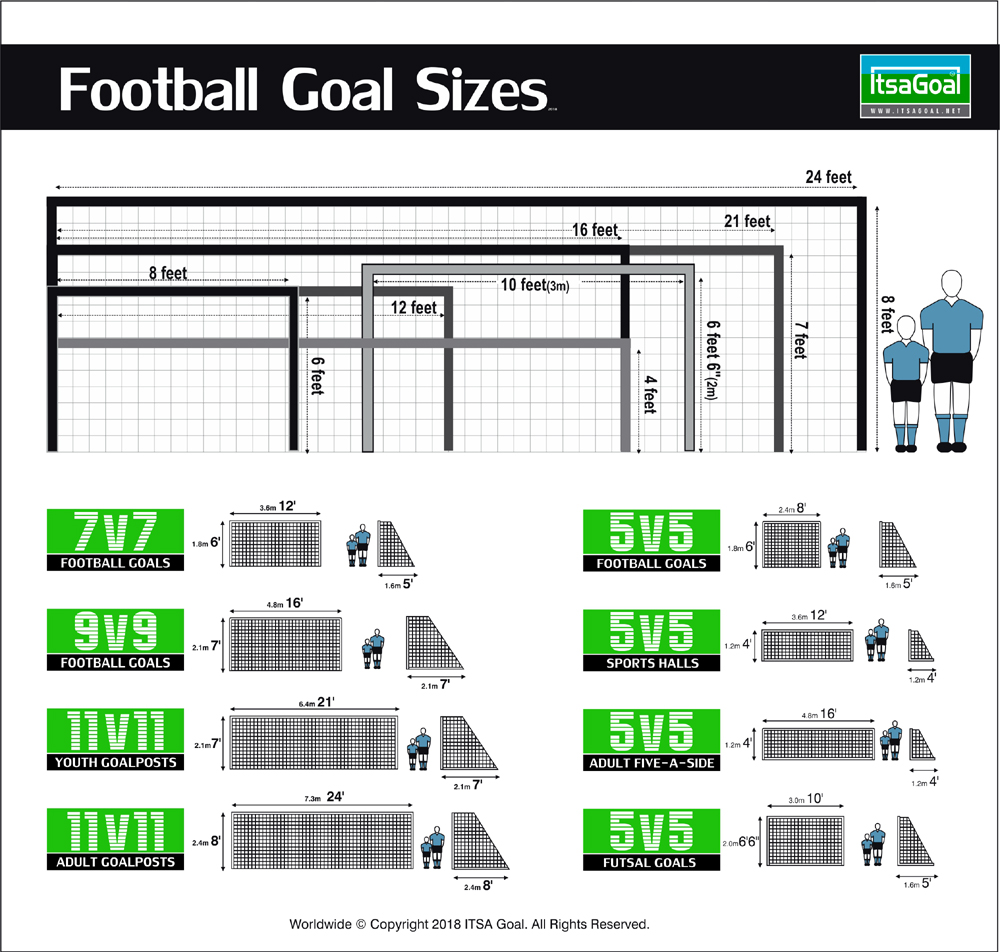
Soccer can be a great way for kids to learn. Soccer teaches children teamwork, how to score goals and how to be confident. Soccer teaches them that winning or losing is not the end. Even though every team has their bad games, they are all good. Perhaps the opposing team was just more successful that day. A kid can't appreciate the feeling that winning brings until they lose.
Beginner's soccer skills
Soccer is a highly physical game. This is why it is so important that children learn to control the soccer ball. This requires good footwork and a steady hand. In addition, soccer players must learn how to receive a pass and make an accurate pass. A quick pass can confuse the defense and open up an area for attack. You should pass the ball to a teammate who is open. Make sure you use your inside foot for a great pass. Next, bend your knee. Then, bring your left leg to the side of your right foot. You will gradually improve your technique and accuracy with practice.
Good soccer coaches teach children to be hard workers and have fun. Children must be able to admit that they have made mistakes, but also learn from them. They will improve their skills faster if they are positive. They will be more likely to learn quickly, and they'll become more confident. Often, beginners don't realize just how much they need until the game begins. This is a very difficult situation, because they will encounter many different opinions about the game.
Teamwork
Soccer is great to help kids develop friendships and social skills. It improves coordination and helps children learn to work in teams. Even if your child is shy, playing soccer will help them overcome that shyness. Healthy competition is an essential life skill that children who play soccer can learn.

One of the best ways to encourage teamwork in your child is to let them cheer each other on. Even if they do not make a play or score goals, they should still learn to cheer on their teammates. Your children will be more likely to do more for their team and to feel more motivated to succeed if you encourage them.
Goal-scoring
Goal-scoring is a crucial skill for kids who play soccer. Goal-scoring is not only a way to improve a player’s game but it also develops other skills. To improve goal-scoring, you must practice different shots. Similar to tennis players who practice various shots, soccer athletes must practice scoring. The more they practice, it is easier to be a better player and more likely to win each game.
Young soccer players must learn ball control, dribbling skills, and how to use effective formations. They should also be taught not to kick the ball down the field, hoping for a lucky bounce. While this strategy can be exciting and quick, it can also result in an unfortunate outcome.
Building self-confidence
Soccer coaches can help you develop self-confidence. They can tell you that you're valued as a soccer player. It's important to know that you are valued, and you should love yourself. This is the first step in building your confidence. Your confidence will improve as you play more soccer. And your coach will be pleased that you love the game.
There will be many situations where you need to overcome your doubts when playing soccer. Top athletes learn from their mistakes, and are able to overcome negative reactions after losing. Instead of feeling defeated or helpless after a defeat, top athletes assess their strengths and make a list.

Developing social skills
Recent research examined the correlation between social development and experience in soccer. The researchers found that there was no significant difference between the two groups in terms of social development, but significant differences in skill. Researchers suggested that future research could include a strategy to evaluate players' social development. Playing sports requires social skills. It can increase an athlete's success chances.
Researchers found that children with Autism Spectrum Disorder may benefit from participating in a group sport. They wanted to gauge the social skills 13 autistic kids who took part in a football program. The children were evaluated on their social skills in a variety of contexts. The study revealed that participation in a sport can help children with Autism Spectrum Disorder to improve their social skills.
FAQ
How do I play soccer?
A soccer ball is used for playing soccer. A typical match involves 90 minutes of continuous action. The ball is continuously kicked during these 90 minutes. The match ends when the teams with the most goals win.
What does a goalkeeper do in soccer?
The fastest players on the field are the strikers. They run up and down the field to shoot the ball at the opposition's goal.
What are the various types of soccer?
There are four main styles in soccer: futsal, indoor soccer, association football (soccer), and beach soccer.
The most common form of soccer is association football (football). It involves two teams of eleven players playing on a field with three sections. Each player is assigned a number on his shirt. He can only play one half of each field at a stretch. All footwear is allowed except for cleats. There are no offside rules. However, defenders cannot touch the ball unless directly involved in an attack. The goal of the match is to score goals by getting the ball through the goalkeeper and into the opponents' goal. The winning team is the one with the most goals.
Futsal is a version of football played indoors. Teams are made up of five players and there are no offside regulations. Each goal is worth one point. Matches last for 20 minutes each quarter, with five-minute breaks in between.
Beach soccer is a variation of traditional soccer, allowing players to play on sand instead of grass. Beach soccer has become more popular because it provides a safe place for children to learn the game.
Indoor soccer can be played in a gym or stadium. Each team has nine players and there are offside rules. The goal must be at least 10m from the other player and is worth 2 points. Matches last for 30 minutes with three-minute breaks in between.
Statistics
- the estimated cumulative television audience for the 2006 World Cup in Germany was 26.2 billion, an average of 409 million viewers per match." (en.wikipedia.org)
- the estimated cumulative television audience for the 2006 World Cup in Germany was 26.2 billion, an average of 409 million viewers per match. (en.wikipedia.org)
- Get 10% off your first purchase using code BLOG. (technefutbol.com)
- From the 1850s onward, industrial workers were increasingly likely to have Saturday afternoons off work, and so many turned to the new game of football to watch or to play. (britannica.com)
- The Laws of the Game do not specify any player positions other than goalkeeper, [74] These positions are further subdivided according to the area of the field in which the player spends the most time. (en.wikipedia.org)
External Links
How To
How to play soccer
Soccer requires good skills, such as passing, shooting and heading. These skills should be improved. It is important to practice these skills every day. Follow these steps to learn how you can play soccer well.
-
Practice dribbling. You can practice dribbling on the field until it becomes natural. When you start practicing dribbling make sure that you do it in short bursts of 5 minutes at a time. When you feel confident with dribbling the length of your practice should be increased to 10 minutes. Keep practicing this technique everyday.
-
Practice passing. Practice passing the ball between you and your opponent. Pass the ball to the correct person. Do not throw long passes. It's much better to direct the ball to the player who is in need. This will save you energy and keep you warm.
-
Practice heading. Heading requires you to place the ball perfectly into the net. This goal can be achieved by practicing getting in position. Keep your back straight and face the target. Next, bend forward slightly to place the ball under your nose. Next, raise the head and look towards what is in the upper left corner. Your eyes should point straight ahead. Finally, raise your arms and let go of the ball.
-
Try to tackle. Tackling is one of the hardest techniques to master. When you get it down, however, it can make football much more entertaining. To begin, you should tackle with your chest and shoulders. Do not go too low. Also, remember to keep your arms close to your body. Tackling is best done in small groups of 2 players. One player serves as the defender, while the other acts as an attacker. As soon as the attacker gets past the defender, they must immediately tackle him.
-
Shooting is a skill that can be learned. Shooting is an advanced skill that requires lots of practice. First, find a spot where you can comfortably shoot from (i.e. Next to the goal. Next, pay attention to your form. Now, hold the ball between both your hands. Keep it far from your body. Bend your knees and point your toes upward. Shoot the ball by making a circular movement with your wrist. You want to hit the bottom right corner.
-
Practice running. Running is another skill that takes some time to perfect. Begin slowly, then increase speed. Running should not be used to attack as it will cause muscle fatigue. Instead, help your teammates by running towards the goal.
-
Practice kicking. Kicking can be one of most difficult skills to master but also one that is the easiest. You must develop core strength and leg strength to be able to kick accurately. You can place your feet together and lift one foot at a stretch. Slowly kick with your heels the ball towards you.
-
Do it again. This is probably the most essential skill needed to become a great player. Dribbling allows for you to control your game's pace. It is essential to control the pace of the game. Without it, your opponent would be able to catch up with you and even surpass you. Consistency is key to mastering your dribbling. You should not change how you dribble daily. Stick to what works for you.
-
Free kicks are available for practice. Free kicks are typically given after a foul occurs or when the goalkeeper makes a mistake. You can score goals with free kicks without needing to play the whole match. You can practice aiming for the corners. Remember to use the instep and not the heel when aiming for the corners of the goal.
-
Practice defending. Defending is all about positioning. Always keep in close proximity to your opponent's player while playing defense. Block his path so that he doesn't score. Always keep your safety in mind.